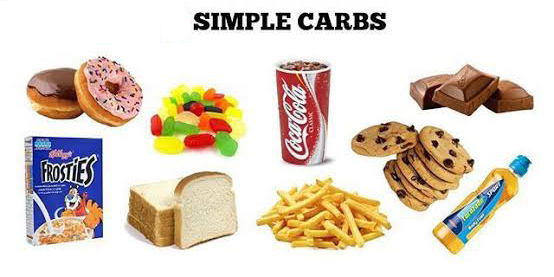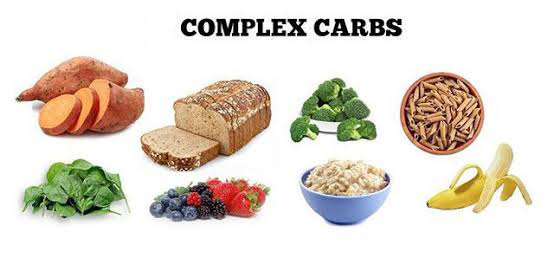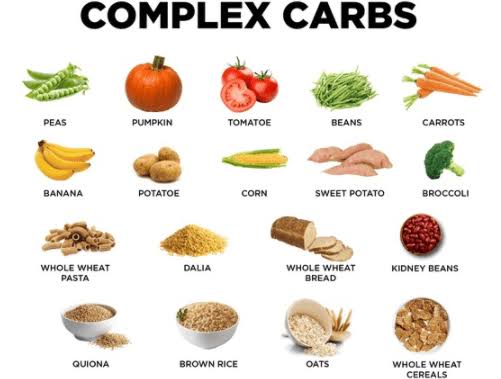What’s up EarthFIT fam? It’s Eli here talking more nutritional tips and tricks today. We’re talking about another exciting topic. We are talking about carbohydrates, what to consume and what not to consume. Carbs can be very scary. A lot of people like to stay away from ’em. Some people are all about ’em. They can’t avoid ’em. Today we’re just gonna kind of differentiate between the carbs that you need, the carbs that you may want and the carbs that are just gonna be best for you to reach your goals. So to break down the word, carbohydrate stands for sugar. Okay. Sugar in general. So I want you guys to think about your blood sugar in terms of this, there are two types of carbohydrates that are simple and there are complex. A simple carbohydrate is going to be sugar in its purest form, which is glucose.

Okay. So when we consume simple carbohydrates, our blood sugar spikes, right? What that looks like on a graph here is when we consume where a low blood sugar area we spike our blood sugar by eating something simple rises up. And then what happens with a spike? There’s a crash. Okay. We don’t want these blood sugar crashes. What happens is we get hungry quick, we get tired, quick, we lose energy. So what we want to do is consume complex carbohydrates.

Complex carbohydrates – before we get into it are made of more than one type of sugar. So what happens is when we consume them, our body actually has to really put forth some effort in order to break them down to their simplest form. So what that means is it takes longer to break down. It takes longer to absorb in our body.
So what this looks like on a graph here for a complex carbohydrate, when we consume it, when our blood sugar is low, there is a slow and controlled rise. And you’ll notice that it lasts a lot longer. It’s not a quick spike. It is slow and controlled, lasts longer, and then slows back on the way down. It’s very important to consume these complex carbohydrates, poor blood sugar control, that way we’re not experiencing these highs and lows throughout the day, well, I’ve got a lot of energy and now I don’t. So what does complex carbohydrate look like?

It looks like vegetables, fruits, and vegetables, whole foods, that food list that we give you, everything that we give you on there, we give it to you for a reason. And so I refer you to that food list to find out more about complex carbohydrates and what types to be consuming.
I got a recent question recently that I really want to answer. I got the question of why there is a portion on the food list of the vegetables that we are not supposed to eat. This goes right into the complex and simple conversation because those vegetables that are on that far side that say, do not consume, are simple carbohydrates at their best. So you’re gonna experience these blood sugar spikes with them. So we just try to stay away from ’em a little bit. That doesn’t mean you absolutely cannot, never have them, but just know that they need to be consumed most likely with a little bit of extra fiber, put some fiber in the meal that you’re gonna be consuming those with. And you’ll be just fine with those. Those are also starchy vegetables, very starchy vegetables are going to have you experiencing this high, this increase in quick spike in blood sugar.

So more complex carbohydrates, whole wheat bread, whole wheat pasta, looking for something that is complex. If you have more questions about examples of complex carbohydrates, simple carbohydrates, I can create some more content on that. I can pump a list out for you if that’s what you would like. Again, just ask more questions. Thank you guys so much for tuning in today. That is our carbohydrate conversation this afternoon. Hope you guys have a great rest of your day.



